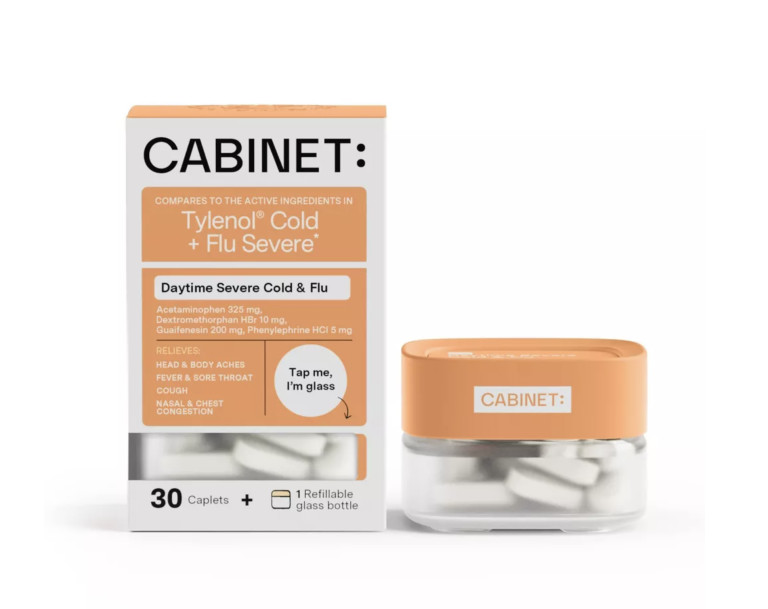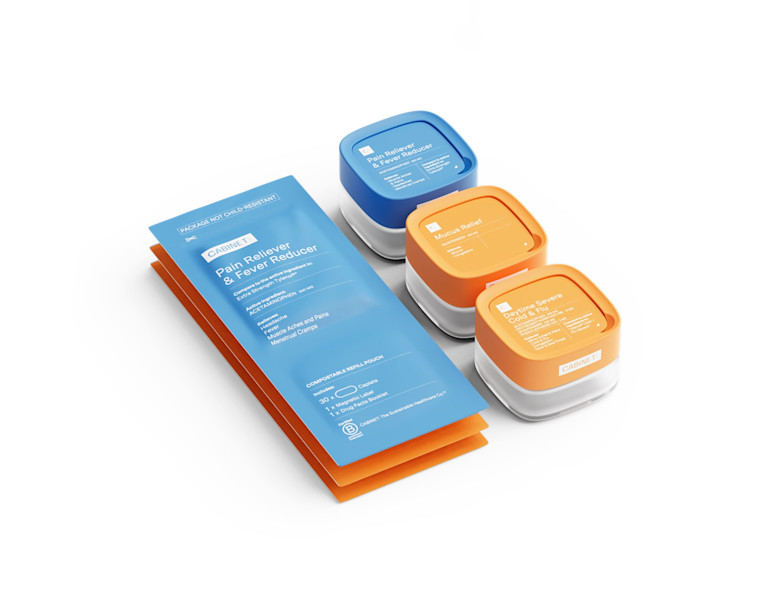"Can you take Dayquil on an empty stomach?" is a common question many people have when deciding to take this over-the-counter medication. To answer this question, it is important to understand what Dayquil contains and how it works in the body. Additionally, considering the impact of food on medication absorption and the opinions of medical professionals can provide valuable insights and alternatives.
Understanding Dayquil: What's in it?
Before determining whether Dayquil can be taken on an empty stomach, it is essential to know what it contains. Dayquil is a popular cold and flu medicine that combines different ingredients to provide relief from various symptoms. The active ingredients in Dayquil include acetaminophen, dextromethorphan HBr, and phenylephrine HCl. Acetaminophen is a pain reliever and fever reducer, while dextromethorphan HBr is a cough suppressant. Phenylephrine HCl acts as a nasal decongestant. These ingredients work together to alleviate common cold symptoms such as aches, coughs, and congestion.
Active Ingredients in Dayquil
The active ingredients in Dayquil include acetaminophen, dextromethorphan HBr, and phenylephrine HCl. Acetaminophen, also known as paracetamol, is a commonly used medication for pain relief and fever reduction. It works by inhibiting the production of certain chemicals in the body that cause pain and fever. Dextromethorphan HBr, on the other hand, is a cough suppressant that helps to reduce coughing. It works by acting on the cough center in the brain, suppressing the urge to cough. Lastly, phenylephrine HCl is a nasal decongestant that helps to relieve nasal congestion by constricting blood vessels in the nasal passages, reducing swelling and congestion.
Acetaminophen, the pain reliever and fever reducer in Dayquil, is a widely used over-the-counter medication. It is commonly used to alleviate headaches, muscle aches, and fever associated with colds and flu. Dextromethorphan HBr, the cough suppressant, is effective in reducing coughing caused by respiratory infections. It helps to provide relief from persistent and irritating coughs, allowing individuals to rest and recover. Phenylephrine HCl, the nasal decongestant, is particularly useful in relieving nasal congestion, making breathing easier and reducing discomfort.
How Dayquil Works in the Body
Dayquil works by targeting the symptoms of a cold or flu. For example, acetaminophen reduces fever and relieves pain by blocking the production of prostaglandins, which are chemicals that contribute to inflammation and pain in the body. By inhibiting the production of these chemicals, acetaminophen helps to reduce fever and alleviate pain. Dextromethorphan HBr, the cough suppressant in Dayquil, acts on the cough center in the brain, reducing the urge to cough. It provides temporary relief from coughing, allowing individuals to rest and recover.
Phenylephrine HCl, the nasal decongestant in Dayquil, works by constricting blood vessels in the nasal passages. When you have a cold or flu, the blood vessels in your nose become swollen and congested, leading to a stuffy or runny nose. Phenylephrine HCl helps to reduce this congestion by narrowing the blood vessels, which in turn reduces swelling and allows for easier breathing. By targeting these specific symptoms, Dayquil provides relief from the discomfort associated with colds and flu.
It is important to note that while Dayquil can provide temporary relief from cold and flu symptoms, it does not cure the underlying illness. It is always advisable to consult with a healthcare professional if symptoms persist or worsen. Additionally, it is essential to follow the recommended dosage instructions and precautions provided on the packaging or as directed by a healthcare professional.
The Impact of Food on Medication Absorption
While Dayquil is commonly taken on an empty stomach, it is essential to understand the impact that food can have on medication absorption. The presence of food in the stomach can affect how medications are absorbed and metabolized by the body.
When we consume food, it triggers a series of physiological processes in our digestive system. The stomach secretes gastric juices, including hydrochloric acid and enzymes, to break down the food into smaller particles. These particles then move into the small intestine, where they are further broken down and absorbed into the bloodstream.
However, when medication is taken alongside food, it can interfere with this process. The presence of food in the stomach can delay the emptying of the stomach, slowing down the absorption of the medication. This delay can be beneficial for certain medications, as it allows them to stay in the body for a longer period, leading to better symptom relief.
The Role of Food in Drug Efficacy
Recent data shows that taking some medications with food can enhance drug efficacy. This phenomenon is particularly evident in medications that require a certain level of fat or protein for optimal absorption. For example, some antibiotics are better absorbed when taken with food, as the presence of fats in the meal helps facilitate their absorption.
Additionally, certain medications, such as those used to treat depression or anxiety, may have a better therapeutic effect when taken with food. This is because food can help slow down the absorption of these medications, providing a more gradual release into the bloodstream and potentially reducing the risk of side effects.
Possible Risks of Taking Medication on an Empty Stomach
However, taking medications on an empty stomach may have potential risks. Some medications can cause irritation in the stomach lining, leading to discomfort or even ulcers. When these medications are taken without food, the stomach lining is more vulnerable to the direct contact of the medication, increasing the risk of irritation and potential damage.
Absorption rates may also vary depending on the medication. Some medications require an acidic environment in the stomach for optimal absorption, and taking them on an empty stomach may result in decreased efficacy. On the other hand, certain medications may be better absorbed when taken with food, as the food can help enhance their solubility and absorption.
It is important to note that the impact of food on medication absorption can vary from person to person. Factors such as individual metabolism, the specific medication being taken, and the composition of the meal consumed can all influence how food affects drug absorption. Therefore, it is always advisable to consult with a healthcare professional or refer to the medication's instructions for guidance on whether it should be taken with or without food.
Taking Dayquil on an Empty Stomach
When it comes to Dayquil, the decision to take it on an empty stomach depends on individual circumstances and tolerance.
Potential Side Effects
Some individuals may experience mild stomach discomfort or nausea when taking Dayquil on an empty stomach. This is due to the ingredients' direct contact with the stomach lining, which can be more pronounced when the stomach is empty. If you are prone to stomach sensitivity or have experienced these side effects in the past, it may be more suitable to take Dayquil with food.
Precautions to Consider
If you decide to take Dayquil on an empty stomach, it is essential to follow the recommended dosage and not exceed the recommended frequency of use. Additionally, it is advisable to consult with a healthcare professional, especially if you have pre-existing medical conditions or are taking other medications that may interact with Dayquil.
Expert Opinions on Taking Dayquil without Food
To gather further insights on whether Dayquil can be taken on an empty stomach, considering the opinions of medical professionals and pharmacists is crucial.
Medical Professionals' Recommendations
Most medical professionals recommend taking Dayquil with food to reduce the risk of stomach discomfort and ensure better absorption. However, they also acknowledge that individual tolerances and preferences may vary. Consulting a healthcare provider will provide personalized recommendations based on one's specific circumstances.
Pharmacists' Advice
Pharmacists are highly knowledgeable about medications and can provide valuable advice regarding Dayquil's usage. They can offer guidance on whether taking Dayquil on an empty stomach is suitable based on an individual's medical history, concomitant medications, and previous experiences. It is advisable to consult with a pharmacist to gain relevant insights and optimize medication use.
Alternatives to Taking Dayquil on an Empty Stomach
If taking Dayquil on an empty stomach is not preferable, there are alternative over-the-counter cold medicines and natural remedies that can provide relief from cold symptoms.
Other Over-the-Counter Cold Medicines
There are various over-the-counter cold medicines available that may have different recommendations regarding food intake. Some may be better tolerated on an empty stomach, while others may require food for optimal absorption. Exploring different cold medicines and their specific recommendations can help find alternatives to Dayquil that better suit individual preferences.
Natural Remedies for Cold Symptoms
Despite the availability of over-the-counter medications, natural remedies can also provide relief from cold symptoms. For example, staying hydrated, consuming hot fluids like herbal teas, gargling with warm saltwater, and using saline nasal sprays can help alleviate symptoms such as sore throat, congestion, and nasal irritation. These natural remedies can be used in conjunction with or as alternatives to medication, depending on individual preferences and symptoms.
In conclusion, the decision to take Dayquil on an empty stomach depends on individual circumstances and preferences. While some individuals may experience mild stomach discomfort, others may tolerate it well. It is essential to consider the recommendations of medical professionals and pharmacists. If taking Dayquil on an empty stomach is not suitable, alternative cold medicines and natural remedies can provide relief from cold symptoms. Consulting with a healthcare professional or pharmacist will ensure the best course of action based on individual needs.












